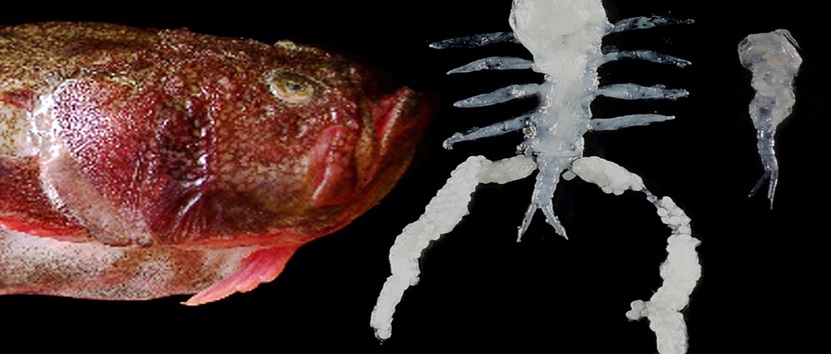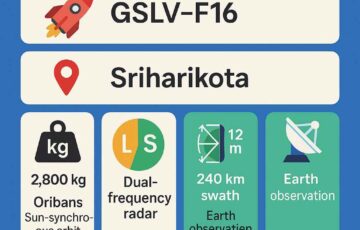DEEP-SEA CRUSTACEAN DISCOVERIES OFF INDIA’S COAST
Why in the News?
- An ongoing biodiversity study of deep-sea crustaceans along the Indian coast has led to remarkable discoveries of a previously unknown family, two new genera, and four new species of millimetre-sized crustacean parasites.
Source: The Hindu
The Uranoscopicolaidae Family:
- A groundbreaking revelation is the identification of a new family of parasitic copepods, named Uranoscopicolaidae.
- These copepods were found to inhabit the Dollfus’ Stargazer fish (Uranoscopus guttatus) residing in the southwestern Indian coast.
- This marks the first-ever discovery and description of a new crustacean family from India.
Genus Hirodai ohstukai:
- Within the newly identified family Uranoscopicolaidae, a new genus and species, Hirodai ohstukai, have been designated.
- These parasitic copepods were found off Colachel, Tamil Nadu, and are known to infest a wide range of hosts, with a preference for fish.
Glyptothoa sagara and Elthusa aquabio:
- Another discovery includes a new genus and species named Glyptothoa sagara.
- The name ‘Glypto’ signifies its presence in the deep-sea fish Glyptophidium macropus, and ‘sagara’ represents the ocean.
- This finding has been published in the international journal Zoological Studies.
Cardiodectes Vampire:
- The fourth new species is Cardiodectes vampire, a flesh-penetrating parasitic copepod measuring 11-12 mm.
- This species was named after the mythical creature that feeds on the blood of the living due to its translucent red color.
- Cardiodectes vampire infests the deep-sea fish Chlorophthalmus corniger and was collected from trawlers operating off Neendakara, Kollam.
Implications of Discoveries:
- These discoveries underscore the significance of studying deep-sea crustaceans in shaping marine biodiversity and ecological dynamics.
- They reveal a world of associations in previously uncharted marine habitats, enriching our understanding of the marine food web.
- The ongoing research emphasizes the critical role of previously understudied deep-sea crustaceans and highlights the need for conservation efforts to preserve these remarkable organisms and their fragile marine environments.






